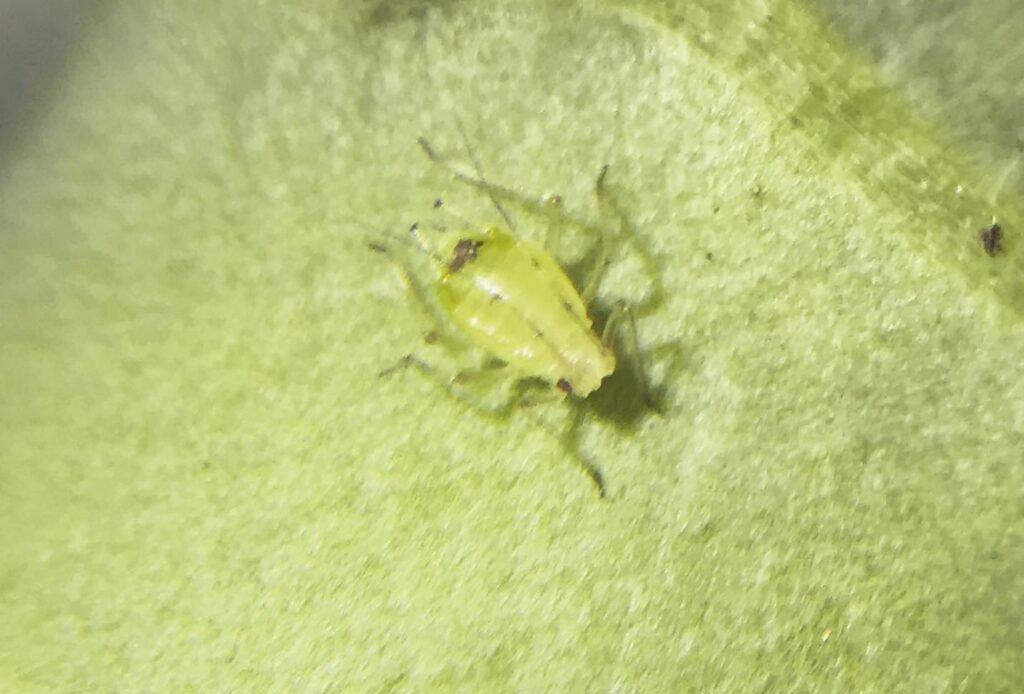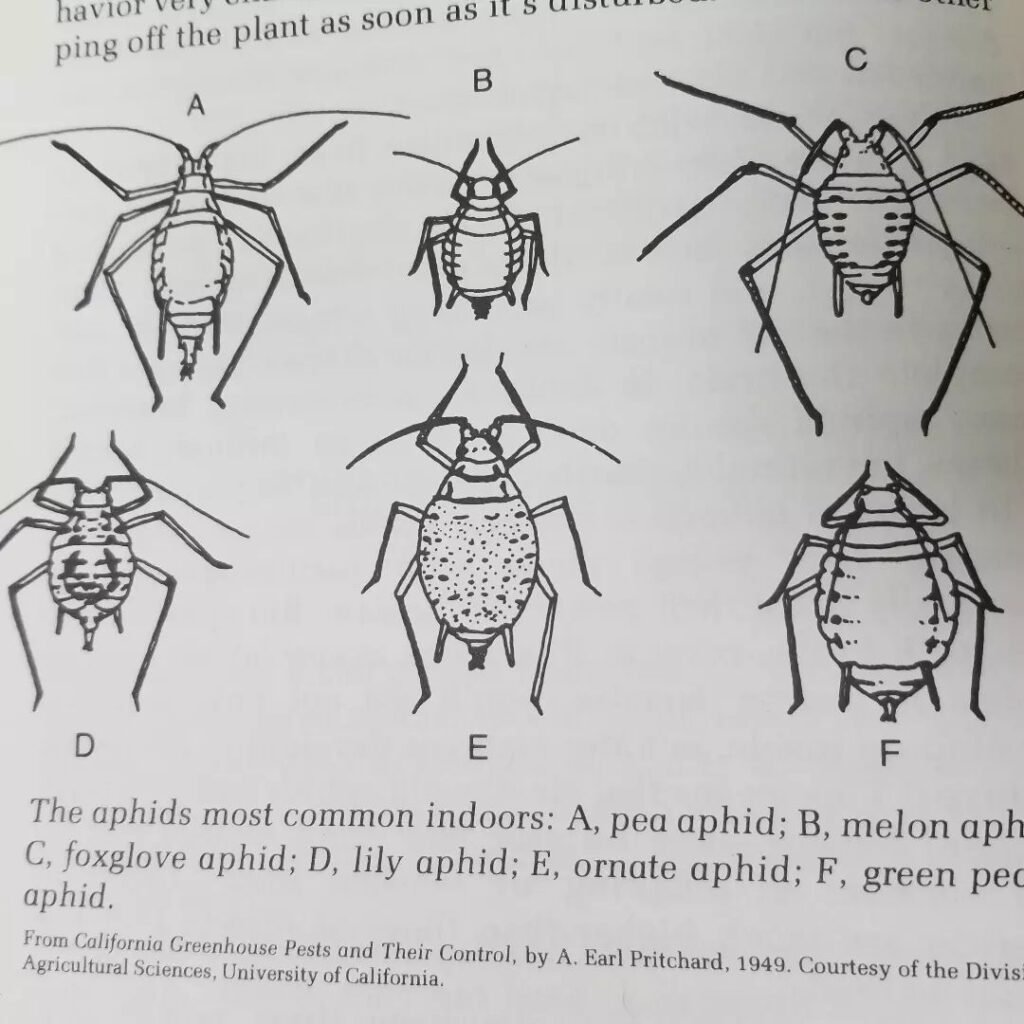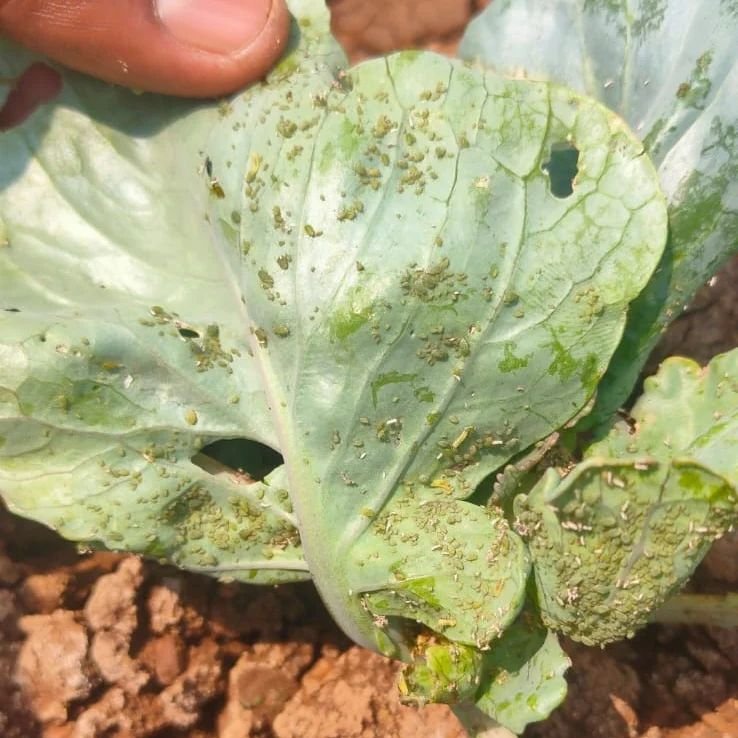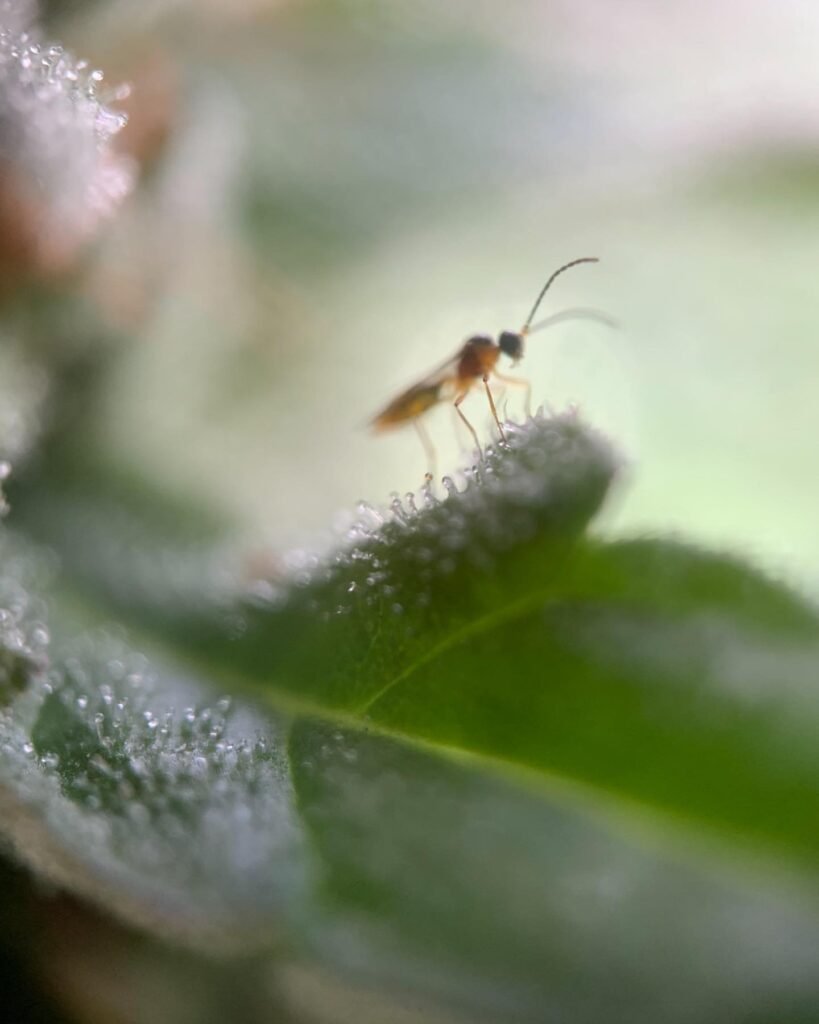Aphids can be a common nuisance in many gardens. These tiny insects thrive by drawing out the nutrient-rich sap from plants. When they’re present in large numbers, they can seriously harm your plants, spoiling both flowers and fruits. Aphids have a knack for rapid reproduction, which makes early control essential to prevent them from multiplying. In just a single season, you might see several generations of aphids. However, there’s a silver lining: aphids are quite slow movers, making it easier to manage them and protect your garden.
What Are Aphids? Understanding These Tiny Garden Invaders

Aphids, small yet formidable pests, are members of the true bug family and a common challenge in UK gardens. These minute creatures, often too tiny to be spotted with the naked eye, can vary in colour, including black, grey, brown, green, and white, making them a diverse threat to a wide range of plants.
These pests primarily target young buds, leaves, and stems, draining the sap and significantly weakening the plants. Both ornamental and edible plants, as well as houseplants, are vulnerable to their damaging effects.
Interestingly, aphids are often found in the company of ants, which tend to “farm” them for the sweet honeydew they produce. This symbiotic relationship can lead to an increase in both aphid and ant populations in your garden.
Addressing an aphid infestation promptly is crucial. If left unchecked, aphids can weaken plants, hinder their fruiting or flowering, and make them more susceptible to diseases and environmental stresses, such as drought. Aphids reproduce rapidly, enveloping plants in sticky honeydew that attracts ants and can lead to further garden woes.
While chemical treatments are available, they may not always be the best choice, especially for edible plants. For those with young children or a preference for eco-friendly gardening methods, several effective home remedies can safely combat aphid infestations. Many of these solutions utilise common household ingredients, making them a convenient and immediate option for pest control.
How to Fight Aphids Using Natural Methods?

- Baking Soda Spray
Create a simple yet effective spray with 1/2 teaspoon of baking soda mixed into 1 litre of warm water. For added effectiveness, include a tablespoon of olive oil or soap to help the mixture stick to the leaves. This solution can be used every few days until the aphids are gone, but be cautious with the concentration to avoid harming the plants. - Garlic Infusion
Garlic’s natural properties make it an excellent pest deterrent. Crush 3-4 garlic cloves and soak them in 1 litre of warm water for at least 24 hours. Strain and spray directly onto affected plants. For a stronger solution, ferment a mix of 75g of garlic (or 500g of garlic leaves) in 1 litre of water, dilute, and then apply. - Nettle Tea
Nettles are not just weeds but can help fight aphids. Soak 1 kg of nettles in 10 litres of water for two weeks. Use this solution, diluted (1 part nettle tea to 20 parts water), to spray on plants or as a fertilising feed. - Milk Mixture
A 1:1 mixture of milk and water acts against both aphids and fungal diseases. Suitable for a variety of plants, including tomatoes and roses, this treatment may only need to be applied twice for effectiveness. - Vinegar Solution
Mix 1 part vinegar with 10 parts water for a gentle yet effective spray. A few drops of dish soap can improve adherence. Use sparingly, as vinegar can harm plants if too concentrated. - Chilli Pepper Spray
Deter aphids with a chilli pepper spray. Soak a handful of chilli peppers in 1 litre of warm water for a week, then use as is. For a more potent spray, steep fresh chillies for up to a week and dilute with water before use. - Dandelion Decoction
Use dandelion leaves to create a natural aphid repellent. Soak 500g of leaves in water for a day, strain, and spray the solution on your plants. - Onion Brew
Boil 700g of onions in 10 litres of water, cool, strain, and then spray the solution on aphid-infested plants. - Soapy Water Spray
Mix a few drops of mild, eco-friendly dish soap with water and spray directly onto the aphids. The soap breaks down the aphids’ protective layer, making them vulnerable. - Companion Planting
Planting garlic, chives, or marigolds among your susceptible plants can help deter aphids naturally, as these plants release scents that aphids find off-putting.
A Few Principles for Applying Natural Sprays Against Aphids…

@gifted_.nature
When addressing aphid issues with natural solutions, it’s crucial to follow a set of fundamental principles to ensure that your methods are both effective and do not harm your garden’s ecosystem. Aim to apply your mixtures either in the early morning or late evening to safeguard essential pollinators such as bees.
Using natural ingredients requires mindfulness, as these substances can inadvertently affect beneficial insects. It’s vital to proceed with caution and adhere to established safety practices.
Choosing an overcast day for application minimises the risk of the solution drifting away or burning the foliage due to strong sunlight, while still avoiding windy conditions that could scatter the spray.
Ensuring that the spray reaches every part of the plant, particularly the undersides of leaves where aphids commonly gather, is key to the success of your treatment. A thorough and careful application is essential to cover all infected areas effectively.
- Dilution Accuracy: It’s important to dilute your homemade sprays correctly according to suggested ratios. Mixtures that are too strong could harm your plants rather than help them.
- Repeat Applications: Natural remedies may need to be applied multiple times to achieve full effectiveness. Monitor your plants after each treatment to decide if further applications are necessary.
- Spot Testing: Always conduct a test by applying the solution to a small section of the plant first and waiting 24 hours to observe any adverse effects before treating the entire plant.
- Encourage Natural Predators: Creating a garden environment that attracts aphid predators, such as ladybirds and lacewings, can help control aphid populations naturally. This can be achieved by planting a variety of plants and avoiding broad-spectrum pesticides.
- Maintain Plant Health: Keeping your plants healthy is one of the best ways to ward off aphid infestations. Well-nourished and stress-free plants are more resilient to pest attacks and more capable of recovering from damage.
Natural Allies in the Battle Against Aphids

To keep aphids at bay from our UK gardens, enlisting the help of natural allies is both an effective and eco-friendly strategy. Aphids find themselves on the menu of several garden benefactors such as ladybird larvae, lacewing larvae, earwigs, and hoverfly larvae. Encouraging these natural predators by creating a welcoming habitat for them helps naturally reduce the aphid population.
Interestingly, aphids have a strong aversion to certain scents, particularly those emitted by lavender and a variety of herbs such as sage and marjoram. Incorporating these plants into your garden not only adds beauty and fragrance but also serves as a natural deterrent against aphids, protecting more susceptible plants.
For plants that aphids find irresistible, consider companion planting with nasturtiums. These vibrant plants act like a magnet to aphids, drawing them away from more valuable plants. Should aphids choose nasturtiums, you can easily remove the affected leaves, effectively keeping your garden aphid-free.
Utilising nasturtium leaves as an aphid trap is a clever garden hack. But don’t overlook the simple yet effective method of manual removal. With gloves on, you can gently remove aphids from plants, providing immediate relief to the infested areas.
Spotlight on the ladybird larva: Despite its different appearance from its adult form, it’s a formidable ally against aphids, not a pest. Welcoming these larvae into your garden amplifies your natural defence against aphid invasions.
Adopting natural aphid control methods aligns with the ethos of sustainable gardening, offering solutions that are safe for both the environment and the garden’s inhabitants. Before reaching for chemical sprays, consider these eco-friendly alternatives. Chemical treatments, though convenient, should be a last resort, following the principles of integrated pest management. By prioritising natural aphid control techniques, we foster a healthier, more balanced garden ecosystem, ensuring our plants thrive alongside their natural protectors.

